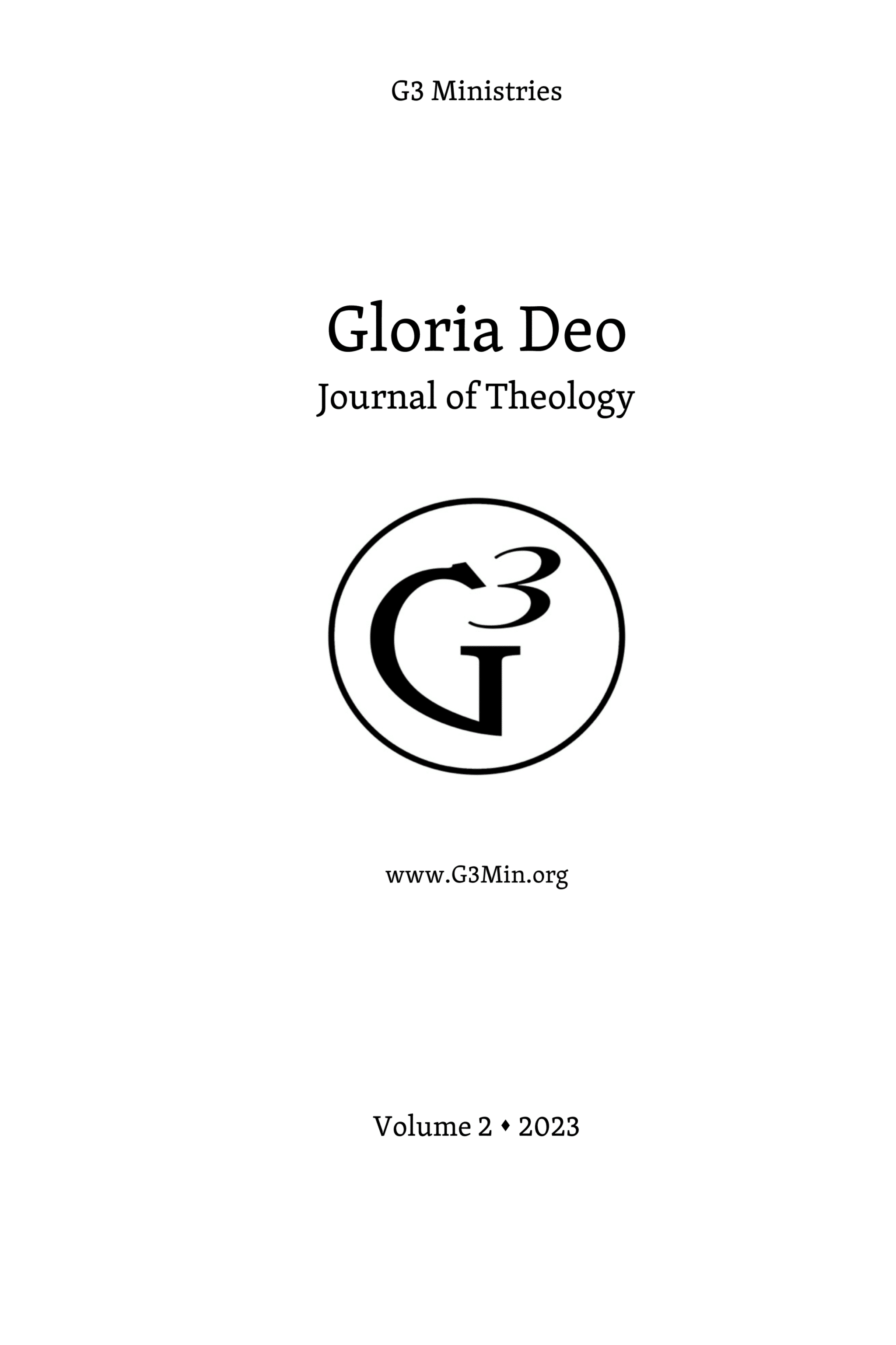Gloria Deo Journal of Theology is an evangelical theological journal published annually at www.G3Min.org by G3 Ministries. It focuses on biblical, theological, and historical topics for pastors.
Publisher: Josh Buice
Editor-in-Chief: Scott Aniol | [email protected]
Editorial Committee: Chip Thornton, Owen Strachan, Mike Riccardi
Editorial Assistant: Laramie Minga
Volume 2 (2023)
“The Nations” and “the World”: Progressive Development in Biblical Theology
Jonathan M. Cheek
Several NT texts present a strong contrast between believers and the world. “I chose you out of the world, therefore the world hates you” (John 15:19). “Do not be conformed to this world” (Rom 12:2a). “You were dead in the trespasses and sins in which you once walked, follow-ing the course of this world” (Eph 2:1–2). “Religion that is pure and undefiled before God the Father is . . . to keep oneself unstained from the world” (Jas 1:27). “Whoever wishes to be a friend of the world makes himself an enemy of God” (Jas 4:4). “Do not love the world or the things in the world. If anyone loves the world, the love of the Father is not in him” (1 John 2:15). “Do not be surprised, brothers, if the world hates you” (1 John 3:13). Such texts undeniably play a significant role in the theology of the NT and in the life of the church.
The Idea of Fundamentalism
Kevin T. Bauder
The word fundamentalist is increasingly showing up as the mot juste for narrowness, inflexibility, obscurantism, and bad manners. For example, David French has referred to vocal conservatives in the Southern Baptist Convention as “fundamentalist pirates.” Similarly, Tim Keller took a public swipe at “the actions of American fundamentalists,” but without specifying exactly which actions he had in mind or who had done them. Roger Olson regularly blogs against fundamentalism, and he recently added this statement to his oeuvre: “I simply don’t have enough respect for true fundamentalism to take it on. Whenever I have tried to wrap my mind around it, I find it to be so strange, so disappointing, so untheological, that I can’t contemplate writing a book against it.”
Christ-Honoring Worship in the Home: Family Worship in the Sixteenth and Seventeenth Centuries
Paul D. Medved
The proper rearing of children was of paramount importance for early Protestants. For that reason, Martin Luther (1483–1546), himself a father of six, once declared, “There is no power on earth that is nobler or greater than that of parents.” Lutheran Reformer and Pastor, Justus Menius (1499–1558), wrote that “the diligent rearing of children is the greatest service to the world, both in spiritual and temporal affairs, both for present life and for posterity.” Similar statements from Re-formers and Puritans are seemingly endless.
Suffering and Hope in Wartime Eschatology
Joshua P. Howard
We may begin by admitting that eschatology is an oft-malnourished doctrine within many Christian circles. For some Christians, eschatology represents the uncomfortable specter of church squabbles regarding things such as the identity of the antichrist or the mark of the beast. Visions of walls cluttered with charts and yarn assail our thoughts, and we immediately feel disoriented and uneasy at the pro-spect of delving much further. For others, eschatology seems to be entirely concerned with the correct interpretation of the millennial period in the Revelation to John, the millennial “kingdom” or “reign.” In any case, Christian conversations concerning eschatology frequently seem to generate far more heat than light, and relationships between involved parties often suffer in the aftermath. For all of these reasons, eschatology has become a doctrine which brings fear rather than hope for many Christians, and it accordingly holds very little impact on their lives and undertakings in this world.
Book Review: Mere Christendom by Douglas Wilson
Scott Aniol
When Stephen Wolfe’s book The Case for Christian Nationalism first came out, I picked up a copy, read the first third of the book, and then decided that it wasn’t really relevant to me at the time. I had written and taught about the biblical relationship between Christianity and culture for over a decade, had fairly firm convictions on the matter, and recognized quickly that I disagreed theologically with Wolfe’s proposal. It was immediately evident to me that his proposal was es-sentially an application of paedobaptism and postmillennialism to whole nations and, well, as a non-postmillennial Baptist, I didn’t think it was relevant.




